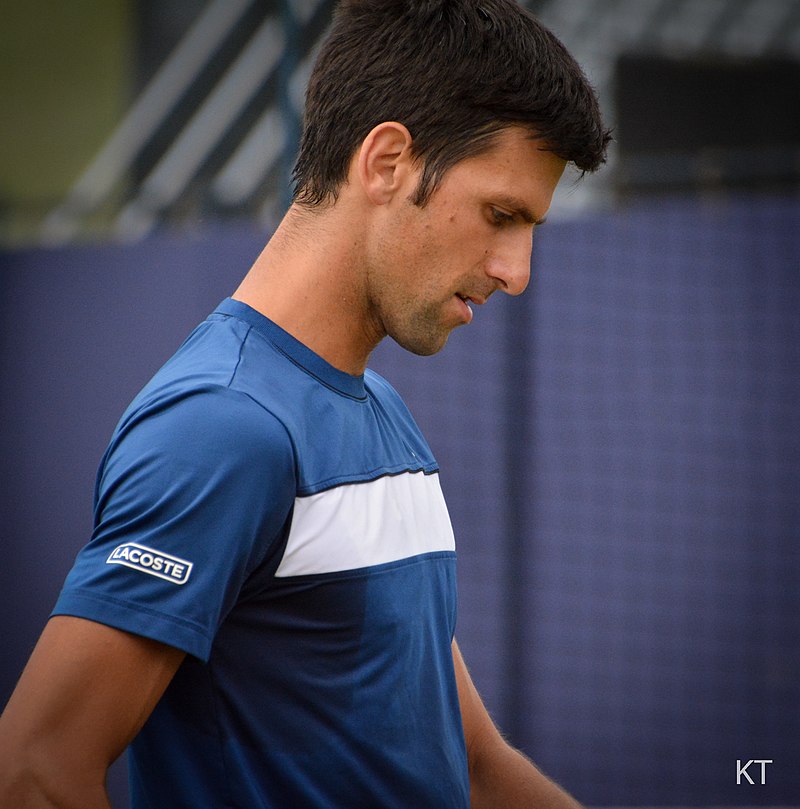A rally with the Australian government: the early days of the Djokovic saga
The back and forward about Novak Djokovic’s appearance at this year’s Australian Open is going on longer than many of the player’s most impressive rallies. After being detained and threatened with deportation, a judge ruled in Djokovic’s favour, suggesting the circumstances surrounding the withdrawal of his visa weren’t entirely lawful. But it seems that the story has only just begun – as Djokovic prepares for the tournament, he is facing scrutiny over his activities while infected with Covid and potential prison time. Here’s a round-up of the latest news.
At his court hearing on Monday 10 January, a judge ruled that Djokovic’s treatment was unreasonable, and ordered his release. The Serbian player went to a venue where he could practice, but the Australian government doesn’t want to leave it at that. It is possible that the Australian immigration minister Alex Hawke could cancel the visa again using a “personal power”, based on prior Covid infections not counting as an exemption. There are also issues on “character grounds”, as it appears Djokovic may have provided untrue information on his arrival form – the tennis player failed to declare that he had travelled outside Serbia (to Spain) in the two-week period before entering Australia, something he attributed to “human error” by his support team. There are suggestions (albeit unlikely ones) that Djokovic could be charged for this.
What about the Serbian situation? In an affidavit to the court, Djokovic said that he was “tested and diagnosed” with Covid on 16 December, and that he was not informed of the positive diagnosis until the following day – this was the reason for his exemption. But he went to two events while Covid-positive. On 17 December, he attended a tennis event in Belgrade to present awards to children, although he claims he was not aware he had the virus. He admits, however, that he knew of his Covid status when he went for an interview and photoshoot with sports mag L’Equipe the following day.
The events leading up to the court hearing “have been damaging on all fronts”
It was confirmed that Djokovic had worn a mask and distanced the entire interview, but it’s still a major situation. Lawyers in Serbia say that breaking the country’s strict isolation rules was an offence under article 248 of the criminal code, subject to a fine or prison sentence of up to three years. Community service or a fine are more likely if this is pursued, because Djokovic is a national hero, but it’s unlikely he’ll escape punishment when he returns home. Although Serbian authorities and the media have largely remained supportive of the player, he probably won’t be able to brush off the story when he returns home (and think of the scrutiny he’ll face if he stays in Australia).
At the time of writing, Djokovic will still appear at the Open (and is the bookies’ favourite to go on and win it). If he does appear, expect the crowd reaction against him to be immense – he has his supporters, yes, but the Australian people are by and large not on his side. To many, it appears that Djokovic is flouting tough rules that they’ve had to obey for two years, although opinion polls suggest that many Australians aren’t overly impressed with how the Morrison administration has handled the situation either, and that they’ve got so heavy on Djokovic because of vocal criticism towards their Covid policy. In general, the story is a bad one for all the major parties – as the ATP said in a statement, the events leading up to the court hearing “have been damaging on all fronts”. Djokovic may win a record-shattering 21st Grand Slam in Australia, but if he does, expect this storm to be so big, it may even eclipse that moment of history.
As we now know, Djokovic was eventually deported from Australia following further investigation by the Australian government, and the tournament goes on in his absence. However, a look back on the beginning of this clash makes the events seem all the more unbelievable.

Comments